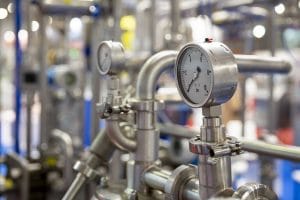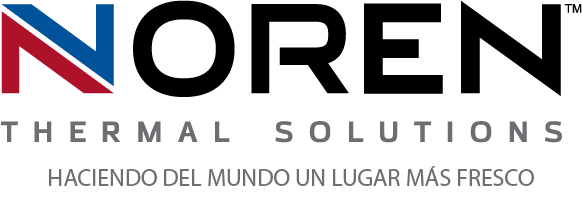 The most important advantages that come with improved, innovative technologies are the abilities to be more efficient and productive without requiring significantly more resources to do so. For example, in the realm of thermal management, the better systems are those that not only handle large amounts of electrical waste heat effectively, but that can do so while minimizing the costs to the companies that rely on them. In many instances, heat exchangers fit that description perfectly. Using advanced methods of transferring heat that don’t require traditional cooling and HVAC methods, heat exchangers have had a notable impact on the improvement of electrical thermal management.
The most important advantages that come with improved, innovative technologies are the abilities to be more efficient and productive without requiring significantly more resources to do so. For example, in the realm of thermal management, the better systems are those that not only handle large amounts of electrical waste heat effectively, but that can do so while minimizing the costs to the companies that rely on them. In many instances, heat exchangers fit that description perfectly. Using advanced methods of transferring heat that don’t require traditional cooling and HVAC methods, heat exchangers have had a notable impact on the improvement of electrical thermal management.
More reliable electrical cooling systems
Generally speaking, thermal management related to technology often means electrical cooling, or the prevention of overheating within various electrical enclosures. This has traditionally meant the use of air conditioners or air compressors that create chilled air to combat electrical waste heat. While effective, this process wasn’t always reliable; the machinery needed to generate and circulate chilled air on a continuous basis requires large amounts of energy, and often needs repairs and maintenance. In the advancement of electrical thermal management systems, heat exchangers have proven much more reliable in several ways. That includes the ability to operate continuously with minimal need to pause for repairs and maintenance.
More convenient and energy efficient operations
The dramatically reduced need for repairs and other maintenance is one highly convenient aspect of heat exchangers. However, better thermal management makes cooling more convenient and efficient for companies in many other ways. For example, heat exchangers cool electrical enclosures by circulating an eco-friendly cooling fluid through an open or closed loop. The fluid is responsible for absorbing electrical waste heat and transferring it through the loop to a cooler area, where it can dissipate the heat. The processes, equipment, and energy requirements for heat exchangers are simpler, yet much more efficient, which means companies can boost their thermal management capabilities while reducing the costs of running their electrical cooling systems.
More isothermal and even machine tool cooling
In addition to electrical cooling, better thermal management has also led to advancements in several other areas of operations for companies. For example, in the molding industry, thermal management is the basis of cooling molds during the production process. The ability to rapidly remove heat from the molds determines the rate at which a company can create its products. With specialized heat exchangers, known as thermal pins, companies can achieve high rates of machine tool cooling at minimal costs, which has a significant positive impact on their production. For more information about the important impacts that come with better thermal management, call Noren Thermal Solutions in Taylor, TX, today at 866-936-6736.







